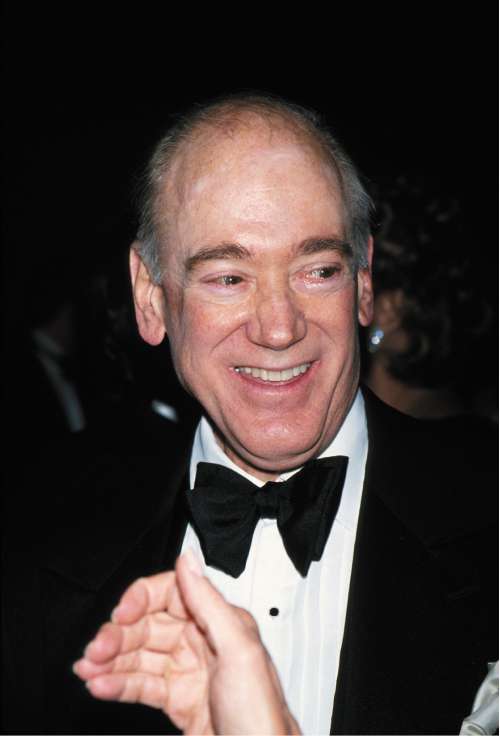Clay Felker: Founder of 'New York' magazine

Clay Felker was the editor who made and lost New York – not the city, but the eponymous, irresistably stylish magazine he created in the late 1960s as flagship for the "New Journalism" of that period, until he was ousted in 1977 by Rupert Murdoch after a bitter takeover battle.
His child was born from the New York Herald Tribune's Sunday magazine, which Felker had edited before the parent paper folded in 1967. Felker bought the rights to the name and raised over $1m to relaunch the magazine as a self-standing publication in its own right. After a slow start, it became one of the hottest publications of its era, an epitome of cool and a reflection of the city in arguably its most narcissistic era when New York – or more exactly Manhattan – considered itself the centre of the human universe.
In the process, Felker fathered the concept of the modern American city magazine. His formula was to combine long pieces on serious subjects, written with style and what is now called "attitude", with a pithy, sometimes irreverent "what to do" guide to New York. The end product was trendy, unashamedly upmarket, but so successful that it spawned an imitator in every self-respecting city in the US, as well as New York's own Pacific coast spin-off magazine, called New West.
Quickly, New York became the showcase for what became known as the "New Journalism". The genre was self-indulgent, on occasion childish, self-centred and gratuitously vicious. Sometimes it was self-conscious social history, using techniques that were novelistic, where fact merged into the author's subjective impressions. But it was also extremely well written, much of it by soon-to-be-star names that Felker took with him from the defunct but much mourned Herald Tribune.
The talent stable included the likes of Gloria Steinem, Pete Hamill, Jimmy Breslin, Nora Ephron and Ken Auletta, as well as Gail Sheehy (who would become Felker's third wife). Most celebrated of all was Tom Wolfe. If a single article summed up the "New Journalism" it was Wolfe's 20,000-word offering in the June 1970 issue of the magazine that described a fundraiser for the Black Panther movement held at the elegant Manhattan apartment of the conductor Leonard Bernstein.
The withering piece predictably outraged all those it dealt with. But it was also a cultural landmark, in which Wolfe coined the phrase "limousine liberals", and which helped implant the notion of Radical Chic in the national consciousness.
In the early 1970s, the magazine lived a golden age. Felker helped launch Steinem's feminist magazine Ms in 1971, and three years later expanded his empire by buying The Village Voice, the liberal weekly. New York magazine itself moved into opulent new quarters on Second Avenue, with its own gym, staff dining room and chef.
His own style was not to everyone's taste. Like many an editor, Felker could be autocratic, bullying, egotistical and deceitful. Breslin for one jumped ship in 1971, denouncing "boutique journalism" and expressing his dismay at what he termed "character collapse" at the magazine.
Nemesis arrived in 1976. With his purchase of the New York Post, Murdoch had just arrived on the city's newspaper scene. Felker suggested to him the possibility of buying a stake in his magazine. Instead, Murdoch launched a hostile takeover bid. After a headline-making struggle he prevailed. "Rupert Murdoch and I disagree on the meaning of friendship, of human values and the meaning of journalism," was Felker's bitter comment after he was ousted in January 1977.
The rest was anticlimax. Between 1978 and 1981 Felker was editor and publisher of Esquire, and thereafter served as editor of various smaller publications as well as a consultant and producer at 20th Century Fox. He also taught journalism at the University of California, Berkeley. But the old magic never quite returned. Nothing would match the heady days of 1960s and 1970s, when New York the city was largely defined by New York the magazine.
Rupert Cornwell
Clay Schuette Felker, magazine editor and publisher: born St Louis, Missouri 2 October 1925; married 1949 Leslie Blatt (marriage dissolved), 1962 Pamela Tiffin (marriage dissolved), 1984 Gail Sheehy (one daughter); died New York City, 1 July 2008.
Subscribe to Independent Premium to bookmark this article
Want to bookmark your favourite articles and stories to read or reference later? Start your Independent Premium subscription today.

Join our commenting forum
Join thought-provoking conversations, follow other Independent readers and see their replies